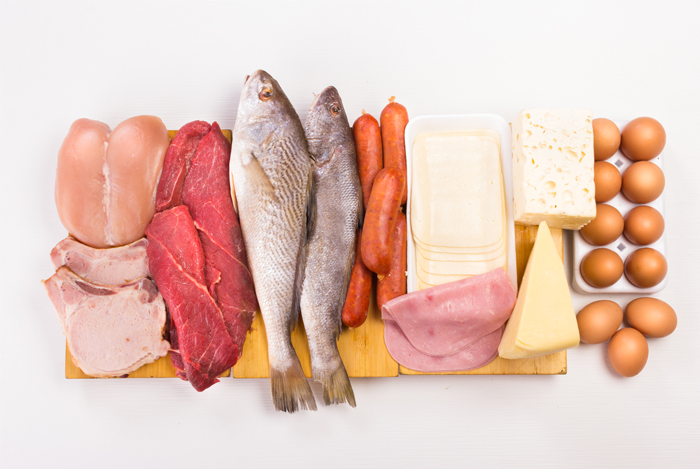It really sounds great when you take a decision of losing weight and be inspired to lead a healthy life. Now, this is where a question hits your mind – how many calories a day to lose weight? To help you with it, I have researched and come up with few things and thought of answering you through this post. Read on. Most of us eat a lot but still won’t be active enough, which is exactly the reason why about two-thirds of the adult population in the US are obese or overweight. You can cut down your calories, only if you are aware of how much you should be consuming in a day.
Contents
About
If you keep eating and do not pay attention to your everyday calorie intake, no wonder you will start gaining weight and call for heart-associated problems. Moreover, to sustain proper weight, it isn’t only food you should be cutting down. Even drinks too. Whether you are trying to lose some weight or planning to lead a healthy lifestyle, right calorie consumption is always the key. If you are confused about it and wondering how many calories should I eat a day, then this article is something you need to read. It gives you some helpful tips on it.
How Many Calories Should You Eat A Day?
Let me make you clear that the amount of calories you consume in a day depends entirely on your current weight. Next, you need to be aware of the calorie consumption you deal with in a day. And I am sure just like others, even you may be unaware of how many calories you’re exactly taking right? You will be surprised with the results after calculating. It exceeds the recommended limit. Here is the formula to help you calculate the number of calories you must consume:
The total amount of calories necessary to sustain your body = Activity Level × BMR
In the above formula, BMR denotes Basal Metabolic Rate. It is the number of calories a human body needs to stay alive without physical activities. To put it in the easier way with an example, consider an individual lying in the coma. His / her daily calorie requirements will be equivalent to our Basal Metabolic Rate (BMR).
Now, this BMR depends entirely on multiple factors. These include:
1. Your Total Weight
BMR varies from one person to the other. The one determining factor is your weight.
2. Your Overall Height
Your height is another factor that helps in determining your BMR. It differs from one person to the other. So, when you ask how many calories a day to lose weight, this factor makes it differ so the answer isn’t exact. For instance, if your total height is about 160m, which literally means if 2 persons have almost equal height, the BMR value still varies. In fact, completely different.
3. Male vs. Female
Your gender also plays a very vital role in determining the number of calories you should be consuming. When compared to women, men usually have higher muscle quantities. Women have less so the amount of calories you should be consuming to burn down also changes.

4. Your Present Age
Your metabolism slows as your age rises up and there is no denying because this is fact. Grab the opportunity before it gets too late. It gets harder and harder to lose your weight as your upcoming birthdays pass by.
This is a very frequently asked question – how much calories should I eat a day, especially from the ones, who are trying to lose weight. Since every individual is different, the calorie requirements vary too. It all depends on few factors:
- Every day activity level
- Height
- Gender
- Age
- How much you want to gain or lose weight
The estimated calorie consumption required for sustaining energy for different age groups and gender are listed below.
| Sex | Age | Sedentary | Active | Moderately Active |
| Kids | 2 to 3 years | 1000 | 1000 to 1400 | 1000 to 1400 |
| Male | 4 to 8 years | 1400 | 1600 to 2000 | 1400 to 1600 |
| 9 to 13 years | 1800 | 2000 to 2600 | 1800 to 2200 | |
| 14 to 18 years | 2200 | 2800 to 3200 | 2400 to 2800 | |
| 19 to 30 years | 2400 | 3000 | 2600 to 2800 | |
| 31 to 50 years | 2200 | 2800 to 3000 | 2400 to 2600 | |
| 51 years and above | 2000 | 2400 to 2800 | 2200 to 2400 | |
| Female | 4 to 8 years | 1200 | 1400 to 1600 | 1400 to 1600 |
| 9 to 13 years | 1600 | 1600 to 2000 | 1600 to 2200 | |
| 14 to 18 years | 1800 | 2000 | 2000 | |
| 19 to 30 years | 2000 | 2000 to 2200 | 2000 to 2200 | |
| 31 to 50 years | 1800 | 2000 | 2000 | |
| 51 years and above | 1600 | 1800 | 1800 |
These calorie levels are calculated based on EER (Estimated Energy Requirements) from “Institute of Medicine Dietary Reference Intake”. Here, sedentary refers to “lifestyle”, which incorporates lighter physical activities associated with day-to-day life. The term “Active” means physical activity that involves walking for over 3-miles a day. “Moderately Active” refers to lifestyle, which incorporates physical activity or walking for around 1.5 – 3 miles a day.
I hope I have answered your question — how many calories should I eat a day. This is not the end of this article. There are still few more things you require knowing about. Read the below section.
As said earlier, a person’s every day calorie consumption depends on different factors. Therefore, it is important for you to be aware of these things.
- The Exercises You Do Every Day: It is no more a secret that interval and resistance training will burn a lot of calories once you stop with the usual workout session or typical aerobic training. Hence, the number of calories to be consumed at such times also varies.
- Your Daily Diet: A high protein diet burns more calories since it takes time to digest & metabolize. Again, your calorie consumption may vary here.
How to Lessen Your Calorie Consumption Without Starving?
Calories are just to measure energy. To put on weight, you need more calories and to lose weight, you need to burn them. And simply cutting down calories without considering foods isn’t a sustainable means to lose weight. Even though it works great for few, a majority of individuals, end up being hungry & eventually, give up their diet plan. So, to keep you lean on a long-term, here are few tips to note.
1. Eat More Proteins
Health experts recommend eating a healthy protein diet. It is not only effective but also takes in less effort. Research shows that protein increases metabolic rate & helps lessen appetite. Since proteins need large amounts of energy to metabolize, a diet high in protein can enhance calories burned up to eighty-two hundred calories in a day. Proteins are always a fulfilling nutrient and help you fight cravings.

2. Stay Away From Sugary Drinks
You have always been constantly hearing from health experts that – sugary drinks are like making you drink your calories. But we never pay attention to such things. Whenever we step out, we end up sipping some of it. However, if you are serious about health, stay away from sugary drinks and sodas. Replace them with water and fresh fruit juice instead.
3. Drink Plenty Of Water
If you want to lose weight, make sure to drink lots and lots of water. This increases the calories you burn up to ninety minutes. Believe it or not, drinking 2 liters or 8 glasses water a day can burn around 96 calories. When combined with healthy diet, water (before meals) can be helpful, particularly if you want to lose weight.
4. Lift Weights & Workout
Whenever you consume fewer calories, your body compensates by burning less, which is exactly the reason why long-term calorie restrictions could significantly reduce your metabolism. Apart from this, it also leads to muscle mass loss. Muscles are active metabolically, which can decrease your metabolism further. So, the only tried strategy to put this off from happening is by lifting few weights. This prevents muscle loss & your metabolism to slow down. You just don’t want to lose your weight. You might also want to have a great shape same time. If you don’t have time for gym, consider performing exercises, chin ups, sit ups, push ups, crunches, squats and so on. Doing cardio like swimming, jogging and walking can also equally important. Though not for fat loss, to maintain a good health.
5. Reduce Your Carbohydrate Intake
If you are still pondering how many calories should I eat a day to lose weight, then make a note of this tip. Pay attention to your carbohydrate intake. When you consume less, your appetite naturally goes down, making you have very little calories automatically. Researchers have proved that eating a very low-carbohydrate diet could make you lose 2 to 3 times of your weight than with a calorie-restricted or low-fat diet. Apart from this, a low-carbohydrate diet has multiple health benefits, particularly in people with the Metabolic syndrome and Type-II diabetes. And even if you don’t want to be on a low-carb diet, its fine. Just ensure that you eat healthy and fiber-rich foods.
 Power Tower Reviews Best fitness equipment for home use, workout program
Power Tower Reviews Best fitness equipment for home use, workout program



